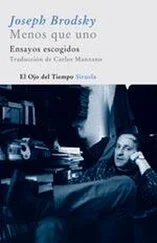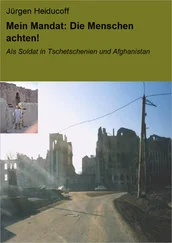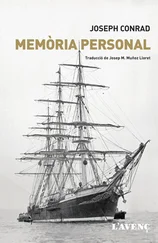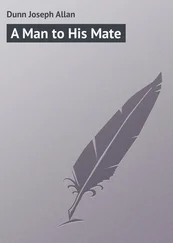‘I want to join the Institute of Theory and Research.’
‘You should then. Maybe you should take our entrance test,’ Acharya said jovially.
‘OK,’ said Adi.
‘Ten thousand students from all over the country take the test. But only one hundred pass. Do you want to take it?’
‘OK.’
‘Grow up fast then.’
Acharya’s keen twinkling eyes then surveyed the boy through a comfortable silence that to him was always a form of conversation. Adi turned nervously towards his father and raised his eyebrows. Acharya’s eyes then slowly became lost and distant. ‘Of all human deformities,’ he said softly, ‘genius is the most useful.’
PART FIVE. Aliens Used Aliens To Make Curd
THE SCHOLARS OP the Institute, too, agreed that news travelled fast. But this evening there was a dispute over how fast. Ayyan Mani was at a corner table of the canteen when the argument broke out between two middle-aged mathematicians who were in a large group. They were near the window that opened to the undulating backyard and ancient solitary trees. In the sedative sea breeze and the hush of the calm sea, the debate unfolded as part banter and part science. It slowly escalated into a serious quarrel. One of the mathematicians angrily ordered a paper plate and appeared to scribble a long string of formulae to suggest that if various probabilities were known, it would be possible to calculate how fast a piece of news, like say the death of a colleague, would travel. The other mathematician angrily ordered another paper plate and wrote down something to show that even if various probabilities were known, the speed of news can never be predicted. Velocity was a function of distance, he said. Though news did travel, he said, it did not travel through a physical space, and so where was the question of speed? The first mathematician shook his head many times and said that there was a ‘nonlinear’ distance involved, and thus news indeed travelled through physical space. Ayyan did not fully understand what they meant by probabilities or nonlinear distance. But he did not have the heart to leave the canteen. After about an hour, both the mathematicians amicably agreed on the third paper plate that bad news travelled faster than good news. That, Ayyan already knew.
He was reminded of the episode a month later, one tense December afternoon, as he sat among his phones waiting for all hell to break loose. But nothing happened. Two hours had passed since the Press Officer had declared, in a release which was faxed to every newspaper and television channel: ‘A stunning breakthrough has been achieved.’ That morning, Oparna Goshmaulik had emerged from the isolation of her basement lab along with two American scientists who were supervising the analysis of the cryogenic sampler. She was holding a bundle of papers in her hand: a collection of handwritten material bound together by a cord. On the last page she had concluded, somewhat inappropriately in thin unremarkable handwriting, ‘The results prove without dispute that living cells have been found at the altitude of 41 kilometres. Spores of rod-like bacillus and engyodontium albus de hoog, a fungus, have been found.’
In the first week of November, Arvind Acharya’s mammoth balloon had flown over Hyderabad carrying four samplers to capture air. Three of the samplers were sent to labs in Boston and Cardiff. The last sampler had arrived at the Institute in a Toyota Innova. Oparna’s team of research hands and the two American scientists, old friends of Acharya, had since studied the sampler. They were completely cut off from the rest of the Institute, and there had been no word from them until this morning. They had walked silently down the third-floor corridor, and without waiting for Ayyan’s rituals of passage, they had gone inside Acharya’s room. It would be recounted later, several times, that when Acharya heard the news he shut his eyes, and did not open them for so long that the visitors left without a word, smiling.
It was now confirmed. There were beings that were falling from the sky. Acharya had become the first man to discover aliens. And the theory that all life on Earth first arrived as microscopic living organisms from space had found support. The line between what was alien and what was terrestrial was now forever blurred. When Acharya came out of his trance, he summoned the Press Officer, a portly hectic man who frequently wiped his forehead with a kerchief.
Ayyan Mani heard the entire dictation on his spy-phone.
‘We have been living with aliens,’ Acharya told the Press Officer, who first thought he was being scolded. ‘It is probable that all these years,’ Acharya had then said happily, ‘aliens used aliens to make curd.’
Five minutes later, Ayyan had seen the Press Officer almost run out. He returned with a printed release, headed (in large capital letters), ‘EXTRATERRESTRIAL LIFE FOUND’. Acharya reprimanded him for the hysteria of the huge fonts, but the rest of the release was approved.
It was around two in the afternoon when Ayyan began to get calls from the exceptional faculty of the Institute asking for more information. Phones began to ring in almost every room, especially the sanctified third floor where the senior scientists worked. The news began to travel. Old men pressed the phone receivers to their hairy ears and raised their eyebrows in incorruptible fascination as they heard from their peers what Acharya had discovered. The younger scientists fired questions at their informers to crosscheck their disbelief. Then the many doors on the long finite corridors of the Institute opened. Scientists walked from their nooks to the office of Arvind Acharya. They went without invitation because it was a tradition here that an appointment need not be sought to congratulate a scientist.
They went to Acharya not in friendship, not in the secret mourning of someone’s good fortune, not even with the foresight of sycophancy. They went as scientists. They wanted to celebrate a moment in time — a rare moment in time — when man was about to learn something more about his little world. That there were living things in the cold reaches of the stratosphere; that they were coming down from space not going up from Earth. That we were not alone, we were never alone. For the first time in the history of rationality, the nature of alien life was going to be explained. So they went to hold the large chubby hand of a difficult man, an arrogant man, who more than everything else, was now a discoverer.
When they began to trickle into the waiting-room, the moving honesty of the silent concourse gave Ayyan gooseflesh. He accepted for the very first time that there was, in fact, such a thing called the pursuit of truth and that these men, despite all their faults, held this pursuit very close to their hearts. That day, just for that day, he conceded that there were things far more important in the universe than the grievances of an unfortunate clerk. He kept Acharya’s door open. It did not have a doorstopper, so he shoved a glossy newspaper supplement that spoke of hair-care, meditation and relationships under the crack beneath the door. He went to a corner of the waiting-room and stood in a funereal silence as the men went in to whisper compliments, or to give a pen in appreciation, or to just stand beside him. From where Ayyan was standing he could see Acharya. He looked happy and graceful, as he stood by the large sea window with the old guard and the young. Jana Nambodri too arrived eventually, though his office was the closest to the Director’s. He went into the open chamber and said, ‘Something in me dies when a friend does well.’ And they hugged.
Later in the evening, the Press Officer sombrely surveyed the ground-floor media-briefing room. There were about twenty journalists. Photographers were taking up positions near the dais. Large men at the back were setting up their cameras. The Press Officer searched the faces of the journalists. He knew most of them. They were seasoned science reporters. He looked with concern at some young fresh faces. He asked their names and said sternly, but with the occasional servile smile, ‘Please read the release very carefully. Everything you need to know is in it. I hope you are aware that the Director is extremely short-tempered.’
Читать дальше












